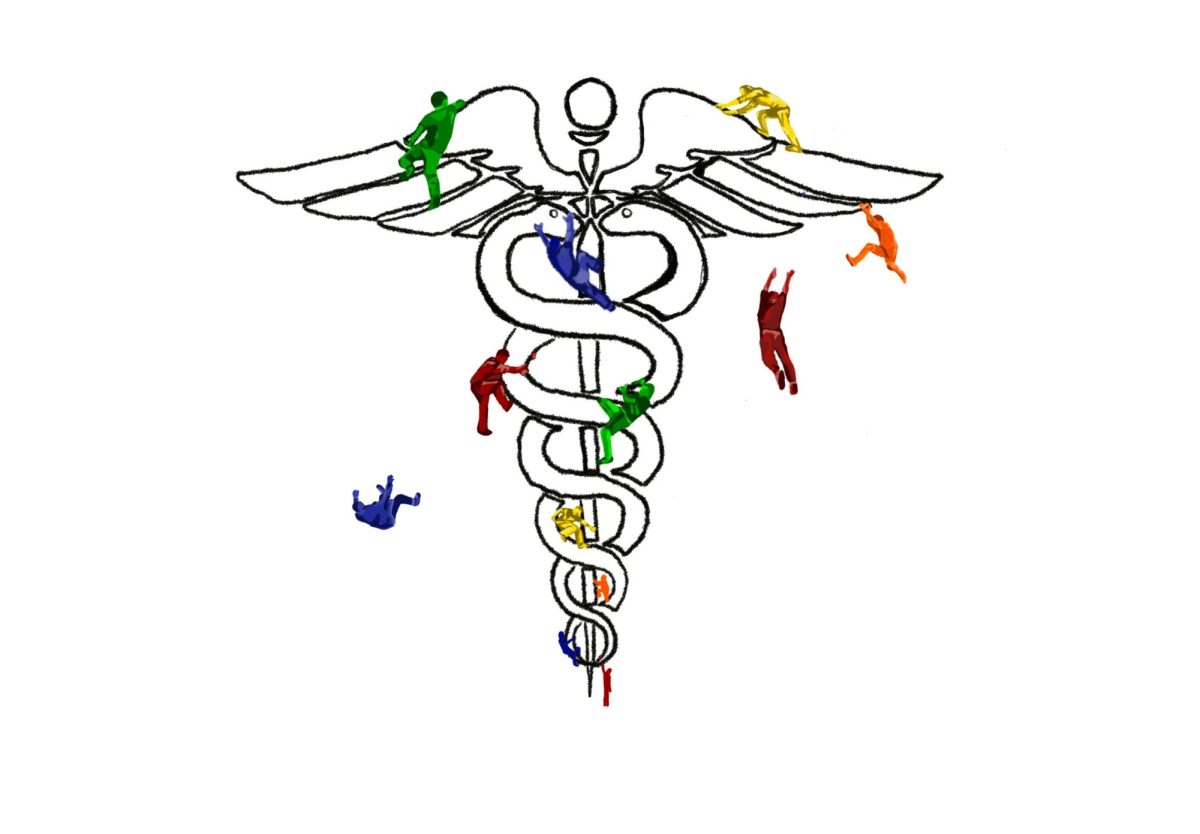[img id=”80491″ align=”alignleft”] The other day in class, a science professor remarked that the two most popular biology courses at the U of C were the Biology of Gender and Nutritional Science—or, in other words, sex and food. Sex I can understand, but the overwhelming interest in food surprised me a bit. After privately ridiculing “exercise and nutritional science” majors at other schools, I almost felt betrayed that U of C students would be so interested in a subject that seems to be only a fallback option for high-school jocks past their prime.
However, it’s important to reaffirm the idea that even the most intellectually minded people can be concerned about health and fitness—and therefore, along the same lines, smart students can also be susceptible to body-image problems. I’m a little bit ashamed to admit that, to me, a female college student with an eating problem seems a little cliché. After all, girls who have eating disorders spend their free time at football games, not reading classic philosophy texts. U of C students clearly have more important things to dwell on than the frivolity that is counting calories.
This stereotype is even somewhat understandable, if not justified. At a school not known for an attractive student body, it’s natural to assume that students would choose to be concerned primarily with academics rather than physical appearance. After all, everyone wants to emphasize his best qualities. I’d also like to think that all of the analyzing and critiquing we do in Core classes lead us to be more aware and less susceptible to negative media influence. In an ideal world, U of C students are defined by whichever qualities they choose, not by what’s dictated by popular culture.
Nevertheless, there’s a difference between devaluing appearance and simply ignoring the problem altogether; as a student body, we may be inclined to the latter. Regardless of appearances to the contrary, it’s clear that some students do care passionately about their looks. Whether it’s a snide remark about another person’s haircut or an expression of anxiety about the availability of healthy choices in the dining hall, it’s obvious that there’s a distinct delineation between the politically correct ways we talk about these issues in an academic context and how we really feel about them.
That’s why it’s important not to let intellectual pretension interfere with the recognition of the pervasive nature of society’s obsession with physical appearance. Especially considering that college students are at an increased risk to develop eating disorders due to factors including age and increased stress levels. Additionally, some studies show evidence that could support the claim that U of C students are even more likely to develop eating problems because the qualities that allow a person to succeed at a challenging school (notably perfectionism) are the same qualities that predispose a person to an eating disorder. Anorexia and bulimia are the extreme examples when considering the negative effects that an obsession with appearance can have on a person’s psyche. Many students are likely affected in less severe—yet still debilitating—ways.
So how do we prevent the development of unhealthy body image while maintaining the belief that knowledge is more important than appearance? Where do we draw the line between recognizing the problem and bringing unnecessary attention to it? First of all, it’s important to simply be aware of the fact that people around you (or even you, yourself) may have unhealthy relationships with their appearances, regardless of whether these relationships are obvious. Once this fact is accepted, it follows that sensitivity must be employed in social situations. Body image issues should never be dismissed as frivolous, and people should seriously consider the potential ramifications of comments about appearance. Remarks made while watching America’s Next Top Model can be just as influential as the discussions that take place in class.
Of course, not all interest in “sex and food” is the expression of a psychological problem cloaked under the guise of intellectualism. Perhaps U of C students really do want to study nutrition from a purely epistemological standpoint, and it’s possible that some of them are simply interested in eating more healthily. On the other hand, maybe it’s important to admit (even if it is just to ourselves) that a small part of us really does just want to look good.
Melissa Maciejewski is a first-year in the College.








